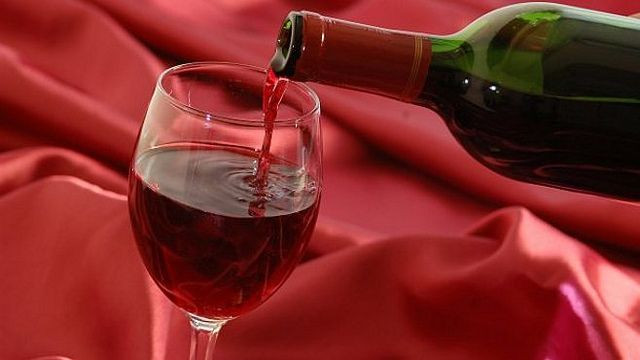More People Than Ever Choose Wine Over Beer: Did Wine's Health Benefits Win Over Drinkers?

Choosing between wine and beer for any occasion has always been a fun and fiery subject for debate, even if beer is preferred by most drinking Americans. But in recent years, wine has become a part of the American way of life more than ever before. According to Gallup's annual Consumption Habits poll, Americans now prefer wine just as much as they prefer beer.
Wine's Popularity Grows
Overall, beer's popularity has been on the decline since 1992, while wine has seen growth in popularity. In the latest poll, 36 percent of respondents preferred beer while 35 percent favored wine. In 1992, 47 percent of the nation preferred beer, while 27 percent of the nation preferred wine.
The most pronounced shift came from those under 30 years old. The latest poll found that only 41 percent of respondents favor beer, compared to 71 percent who preferred it in 1992. Meanwhile, their preference for wine rose from 14 percent to 24 percent.
The percentage of respondents, ages 50 and up, who favored wine also grew from 37 percent in 1992 to 46 percent in 2013. Although the percentage of respondents who preferred beer also rose by one percent, this particular age group has preferred wine to beer and liquor for the past two decades.
Liquor preference also rose in all age groups except those 50 and up.
(Photo : Gallup)
Have People Heard About The Benefits Or Do They Just Want Something Cheap?
There are a few reasons this shift could have occurred. For one, the "critter label" phenomenon, in which wine makers labeled their wines with animals (yellowtail) made a "huge impact in making wine seem more informal and approachable to Americans," Field Maloney, who is writing Crush, a cultural exploration of the world of wine, said in a Q&A with Washington Post readers.
He also said that the quality of cheap wine improved significantly over the past two or three decades.
"The quality of cheap wine has gone up astoundingly," he said. "I think that made it easier for Americans to think of it as an everyday drink and not a special occasion luxury."
On top of all of this, there have been many reports of wine's health benefits. Red wine has long been thought of as heart healthy. It has higher concentrations of antioxidants, such as resveratrol, than any other alcohol. They work to reduce "bad" cholesterol, prevent blood clots, and increase "good" cholesterol. Research suggests that they also improve the body's insulin sensitivity.
A study published in the journal of the American Diabetes Association, Diabetes Care, found that wine lowered the risk of type-2 diabetes. "Alcohol consumption can play a part in a healthy lifestyle to help reduce the risk of developing diabetes type 2," the researchers wrote in a statement.
Another study found that drinking occasionally could lengthen a person's overall lifespan. It found that drinking less than four drinks per day for men or less than two drinks per day for women, respectively, could reduce the risk of death by 18 percent.
"Little amounts, preferably during meals, this appears to be the right way (to drink alcohol)," Dr. Giovanni de Gaetano, author of the study, said. "This is another feature of the Mediterranean diet, where alcohol, wine above all, is the ideal partner of a dinner or lunch, but that's all: the rest of the day must be absolutely alcohol free."
Wine's preventative benefits seem endless. Other research has found that it may help prevent cardiovascular disease and the common cold, and even help men with sexual dysfunction.
Gallup didn't ask consumers why they chose wine over beer, or vice versa, but why do you think these trends are changing? We'd like to know your thoughts in the comments section below!



























